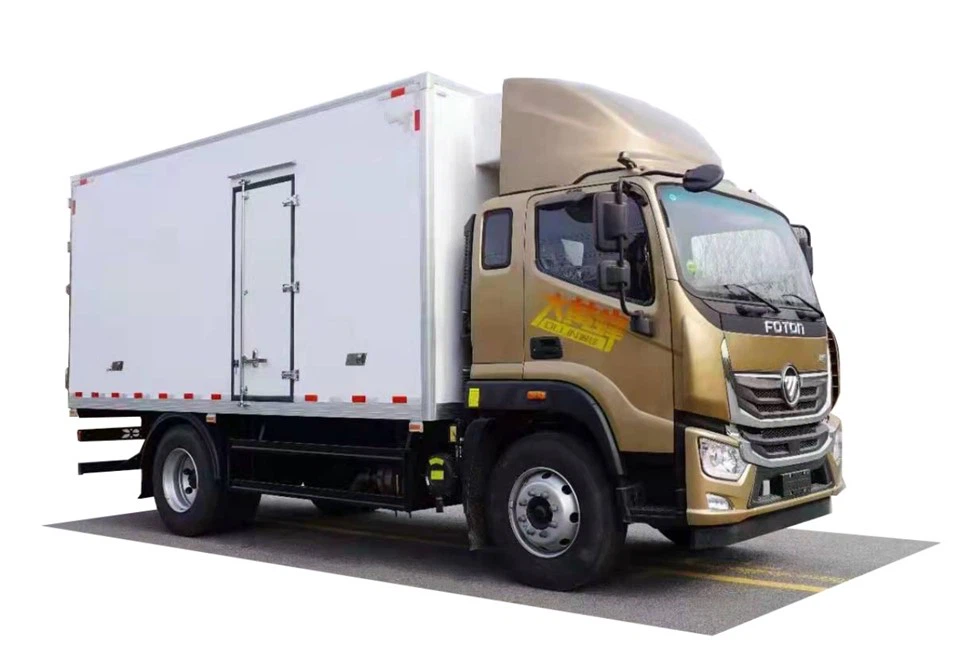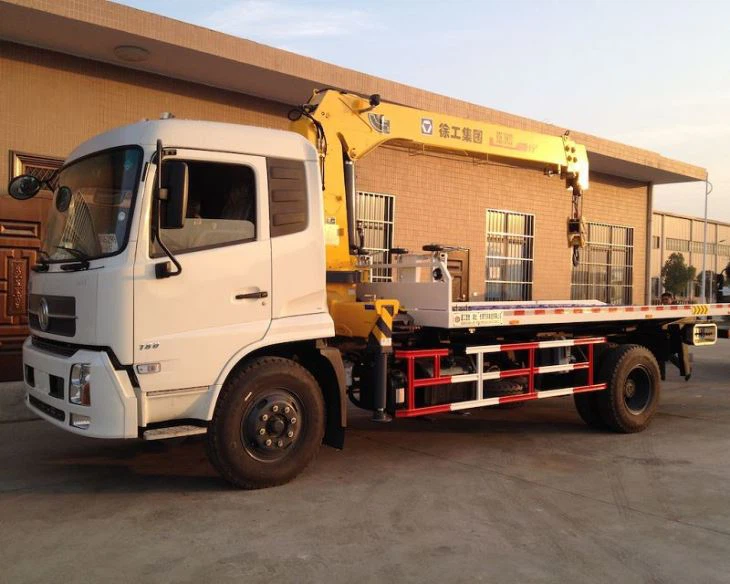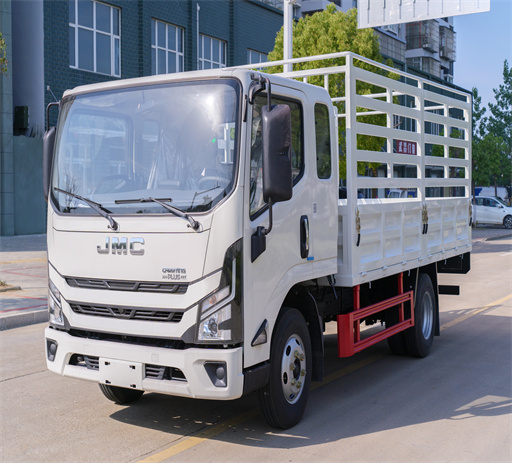Everything You Need to Know About Pick Up Garbage Trucks

Introduction
The pick up garbage truck is a crucial component of modern waste management systems. These specialized vehicles play a significant role in maintaining cleanliness and hygiene in urban and suburban areas. As cities grow and populations increase, the demand for efficient waste collection becomes more pressing. This article delves into the functioning, types, benefits, and maintenance of pick up garbage trucks, providing valuable insights and practical tips for better understanding this essential vehicle in our communities.
What is a Pick Up Garbage Truck?
A pick up garbage truck is a large vehicle designed to collect and transport waste to disposal or recycling facilities. These trucks feature automated or manual systems to raise and empty waste containers, making the process efficient and safe for workers. With advancements in technology, pick up garbage trucks have evolved, incorporating features that enhance their performance and reduce environmental impact.
The Different Types of Pick Up Garbage Trucks
1. Rear-Loading Garbage Trucks
These trucks have a compartment at the back where waste is loaded. They are commonly used in residential areas and are operated either manually or with an automated arm. Rear-loading trucks are known for their maneuverability in tight spaces.
2. Front-Loading Garbage Trucks
Front-loading trucks feature a large bin that can be lifted from the front. They are typically used at commercial establishments and are efficient for collecting large amounts of waste. The design allows for easy access to the waste without needing to navigate tight spaces.
3. Side-Loading Garbage Trucks
Side-loading trucks are designed for efficiency and convenience. They can be operated by an automated arm that handles heavy bins, making them suitable for residential areas. This design reduces the physical strain on drivers and promotes safety on the job.
4. Roll-Off Garbage Trucks
Roll-off trash trucks are used for transporting larger containers, such as dumpsters at construction sites. These trucks have a specialized mechanism that allows for the easy loading and unloading of large waste containers.
Components of a Pick Up Garbage Truck
| Component | Description |
|---|---|
| Chassis | The supporting framework of the truck, which houses the engine and transmission. |
| Compaction System | A system that compresses waste to maximize space within the truck. |
| Hydraulic System | Used to lift and operate the truck’s loading mechanisms. |
| Cab | Where the driver operates the vehicle and controls the loading systems. |
| Body | The main structure that holds waste with compartments for separation. |
How Pick Up Garbage Trucks Operate
The operation of a pick up garbage truck involves several steps:
1. Collection
Garbage trucks follow designated routes to collect waste from bins or containers placed along streets. Depending on the type of truck, this can involve manual or automated operation to lift and empty containers.
2. Compaction
Once waste is collected, the truck’s compaction system compresses it, allowing for efficient transportation. This reduces the frequency of trips to disposal sites and minimizes the carbon footprint.
3. Transport
The truck then transports the waste to transfer stations or landfill sites. Proper routing and scheduling help optimize fuel consumption and reduce environmental impact.
4. Disposal
Finally, waste is either dumped in landfills or sent to recycling facilities, depending on the type of waste collected.
Importance of Pick Up Garbage Trucks
Pick up garbage trucks are essential for several reasons:
1. Public Health
Regular waste collection prevents the spread of diseases and pest infestations. Clean communities promote better health outcomes for residents.
2. Environmental Protection
Efficient waste management through pick up garbage trucks helps reduce landfill waste and encourages recycling, significantly mitigating environmental pollution.
3. Aesthetic Improvement
Regular garbage collection keeps communities looking clean and attractive, boosting property values and enhancing quality of life.
Benefits of Using Modern Garbage Trucks
1. Increased Efficiency
Modern garbage trucks utilize advanced technologies like GPS and routing software that allow for optimal waste collection routes, reducing travel time and fuel consumption.
2. Enhanced Safety Features

With features like rearview cameras, automatic braking, and advanced lighting systems, modern trucks improve safety for both the operator and the public.
3. Eco-Friendly Options
Many new garbage trucks are designed with environmentally friendly mechanisms, including hybrid or electric power sources that reduce emissions.
Maintenance Tips for Pick Up Garbage Trucks
To ensure the longevity and efficiency of garbage trucks, regular maintenance is crucial. Here are some essential tips:
1. Routine Inspections
Regularly check the truck’s mechanical and hydraulic systems to identify issues before they become significant problems.
2. Cleaning
Regularly wash the truck, especially the compaction system, to prevent waste buildup and odor issues.

3. Tire Maintenance
Check tire pressure frequently and replace tires when worn out to ensure safety and fuel efficiency.
4. Schedule Professional Services
Engage professional mechanics for comprehensive service and repairs to maintain optimal performance.
Practical Examples of Garbage Truck Usage
1. Residential Waste Collection
In residential neighborhoods, side-loading garbage trucks are often employed due to their ability to maneuver easily and efficiently collect waste from curbside bins.
2. Commercial Waste Management
Front-loading trucks are common in commercial settings. Consider a restaurant that generates a high volume of waste; these trucks efficiently collect bulk waste from commercial dumpsters.
3. Construction Sites

Roll-off trucks are vital at construction sites for their capability to transport large amounts of waste materials, helping maintain site cleanliness and safety.
Frequently Asked Questions (FAQs)
1. How often do garbage trucks pick up waste?
Pickup frequency varies based on location, typically ranging from once a week to daily for some commercial areas.
2. What types of waste can garbage trucks collect?
Garbage trucks can collect general waste, recyclables, yard waste, and hazardous materials, depending on local regulations.
3. Are there specific guidelines for garbage disposal?
Most municipalities have guidelines that specify what can and cannot be disposed of in regular waste. Always check local regulations for compliance.
4. Can garbage trucks operate in inclement weather?
Yes, modern trucks are equipped to operate in various weather conditions; however, drivers are trained to prioritize safety.
5. What happens to the waste collected by garbage trucks?
After being collected, waste is transported to transfer stations or landfills, or sent to recycling facilities, depending on its nature.
6. How has technology impacted garbage truck operations?
Technological advancements have improved efficiency through better routing, automation in collection, and eco-friendly designs that reduce environmental impact.
